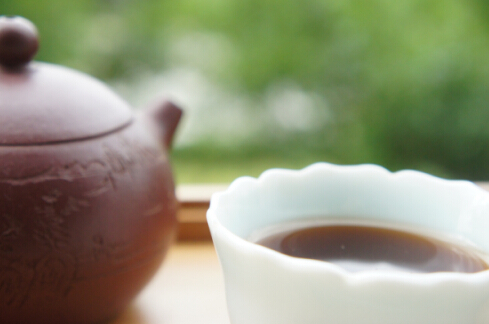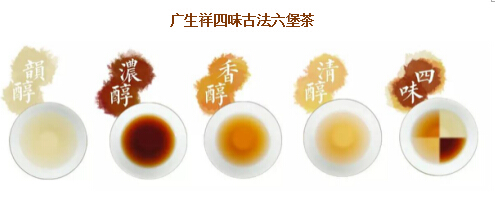
Can't sleep after drinking tea? Is it the effect of caffeine?
1. Simply looking at the various effects and benefits of tea from a single perspective of substance data cannot lead to a relatively comprehensive conclusion; it must also be considered in conjunction with traditional Chinese medicine theories such as 'Four Qi and Five Flavors.' For example, research institutions have used the same fresh leaves to make tea with different processes of the six major tea categories, and the caffeine content is highest in black tea and lowest in green tea. If one concludes that black tea excites and causes insomnia, this is clearly contrary to common sense.
2. According to probability, more fermented teas are more calming than lightly fermented or unfermented teas, but this is only a probability and does not apply to everyone. For instance, even with highly fermented tea, people with 'internal heart qi deficiency' in Chinese medicine may still feel excited and unable to sleep after drinking, which is an individual difference unrelated to probability.
3. The 'rich, mellow, fragrant, and clear' four flavors of ancient Liubao tea, excluding aging time, generally have deeper fermentation in the rich and mellow series compared to other series. If intentionally chosen for calming, the rich and mellow series of ancient Liubao tea is the first choice.

Guangshengxiang ancient Liubao tea's fermentation processes of piling, steaming, and stewing, before the first drying of the tea leaves, involve repeated combinations of piling, hot re-rolling, and hot stewing, resulting in better transformation of the tea's internal substances. The cold, cool, warm, and hot properties are basically fixed on the 'neutral' baseline, completely laying a good foundation for later transformation in terms of both substance and energy. After the first drying of the tea leaves, the repeated combination of steaming and stewing fermentation processes, on the rich foundation of substances and energy, makes it easier to form a rich microbial flora.
Because of these two factors, Guangshengxiang ancient Liubao tea has a neutral nature, being soft, thick, smooth, and layered, suitable for a wide range of people; it has strong tea energy, entering the kidney meridian and governing vessel; and it has a rich microbial flora, warming the small intestine and helping it receive and transform substances, thus saving kidney yang. By simultaneously caring for the governing vessel and small intestine, its dampness-removing and stomach-regulating effects are remarkable!
A cup of soft, thick, smooth ancient Liubao tea with remarkable dampness-removing effects requires not only the craftsmanship of 'following the laws of yin and yang and harmonizing with the numbers,' but also a calm and unflustered heart.